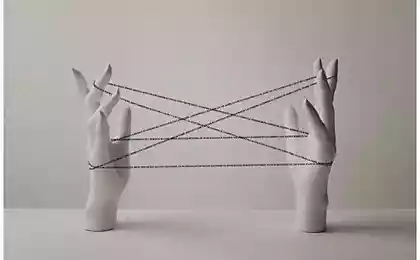102
8 Signs You Don’t Realize Your Value
The Invisible Barriers That Prevent You From Reaching Your True Potential

Imagine that you own a priceless diamond, but carry it in your pocket without even knowing it exists. This is what happens to most people: they live without realizing their true worth. Low self-esteem is not just a psychological feature, it is a powerful mechanism of self-sabotage that blocks access to internal resources and opportunities.
Self-esteem is not what you think of yourself. This is what you know about yourself at the deepest level.
Self-Depreciation Mechanisms: How We Devalue Ourselves
The human psyche is surprisingly complex. Self-esteem is not formed simultaneously, but through multiple cycles of experiences, assessments and internal dialogues. When this mechanism fails, a paradoxical situation arises: the more a person achieves, the less he values his success.
1 Self-Deprecation Syndrome: When Success Becomes an Accident
One of the most damaging signs of low self-esteem is the tendency to devalue one’s own accomplishments. A person attributes his successes to luck, external circumstances, the help of other people - anything but his own abilities and efforts.
If you are constantly thinking: “I was just lucky”, “It was easy”, “Anyone would have coped in my place” – this is an alarming signal. You deny yourself the right to be proud of your accomplishments.
Practical steps to change: • Keep a daily “winning journal” – record even the smallest successes
• Analyze your contribution to each achievement: what exactly did you do for this result?
• Stop comparing yourself to others, your path is unique and equally valuable.
2 Dissolving Boundaries: When No Becomes an Inaccessible Word
People with low self-esteem often become “comfortable” to others. They don’t know how to say no, they constantly sacrifice their interests for the sake of others, allow them to violate their boundaries. This is not altruism; it is fear of rejection.

Setting healthy boundaries is not selfishness but a necessity. When you do not protect your inner space, you gradually lose touch with your own needs and desires.
3 Chronic Apology: When "I'm sorry" becomes automatic
Constantly apologizing for things that do not require an apology is a sure sign that a person does not feel the right to exist as he is. It’s a deep-seated belief: “I’m wrong, so I have to apologize for my presence.”
Before you apologize, ask yourself, “What exactly am I apologizing for?” If the answer isn't obvious, replace the apology with another phrase: "Thank you for understanding" or "Can I ask a question?"
4 Dependence on external approval: when the opinion of others becomes a compass
When self-esteem fluctuates depending on the opinion of others, a person loses the inner core. He begins to live not his own life, but a life that others like. It is a path to inner emptiness and loss of authenticity.
True freedom begins when you stop needing the approval of others and start trusting your inner voice.
5 Avoidance of attention: when the light of the spotlight seems a threat
People with low self-esteem often have a fear of being noticed. They avoid public speaking, try not to stand out, prefer to stay in the shadows. The paradox is that these people often have unique ideas and abilities.

The gradual overcoming of fear of attention: Start small: Share your opinion in a friendly conversation
• Speak at a small workshop
• Gradually increase the dose of attention to yourself
• Remember, most people are well-intentioned.
6 Fear of rejection: When loneliness seems like a disaster
This fear makes people adapt to others, hide their true thoughts and feelings, avoid conflicts at all costs. The result is superficial relationships and feelings of inner loneliness, even when surrounded by people.
The paradox of relationships: the more you try to please everyone, the fewer people will truly recognize you. Authenticity attracts those who are truly in tune with your nature.
7 Toxic Attachments: When Harm Seems Normal
People with low self-esteem often end up in destructive relationships because they feel they don’t deserve better. They justify the partner, hope for his change, accept unacceptable behavior as the norm.
Signs of toxic relationships: Constant feeling of anxiety and tension
• The need to constantly justify the behavior of the partner
• Feeling like you’re walking on eggshells
• Loss of contact with friends and loved ones
8 Failure to Take Compliments: When Praise Becomes Torture
Last, but not least, is the discomfort of receiving compliments. A person with low self-esteem either does not believe in the sincerity of praise, or believes that he does not deserve kind words.
The technique of accepting compliments: • Just say “thank you” without excuses or objections.
• Stick to the inside: “This man noticed something good in me.”
• Don’t analyze motives, just accept a gift in the form of kind words.
The Way to Realize Your Value
Awareness of one’s own worth is not a momentary insight, but a gradual process. It’s like clearing the rubble in an abandoned house: first you clean up the trash of destructive beliefs, then you rebuild the foundations of healthy self-esteem, and then you build a new reality.
Conclusion
Your value does not depend on external achievements, the opinion of others or the conformity to someone’s expectations. It exists simply because you exist. Acknowledging this fact is the first step to a full, authentic life where you are the protagonist of your story, not the extra in someone else’s play.
Glossary
Self-esteem is a subjective assessment of a person’s own value, significance and abilities.
Authenticity is the correspondence of external behavior to internal beliefs and values.
Personal boundaries are the psychological limits that determine what is acceptable and what is not in interaction with others.
Toxic relationships are interpersonal relationships that cause emotional or psychological harm to one or both parties.
Self-sabotage is unconscious behavior aimed at impeding one’s own success and well-being.
Approval is the need for positive appreciation and acceptance by others.
Introspection is the process of self-observation and analysis of one’s own thoughts, feelings, and motives.























